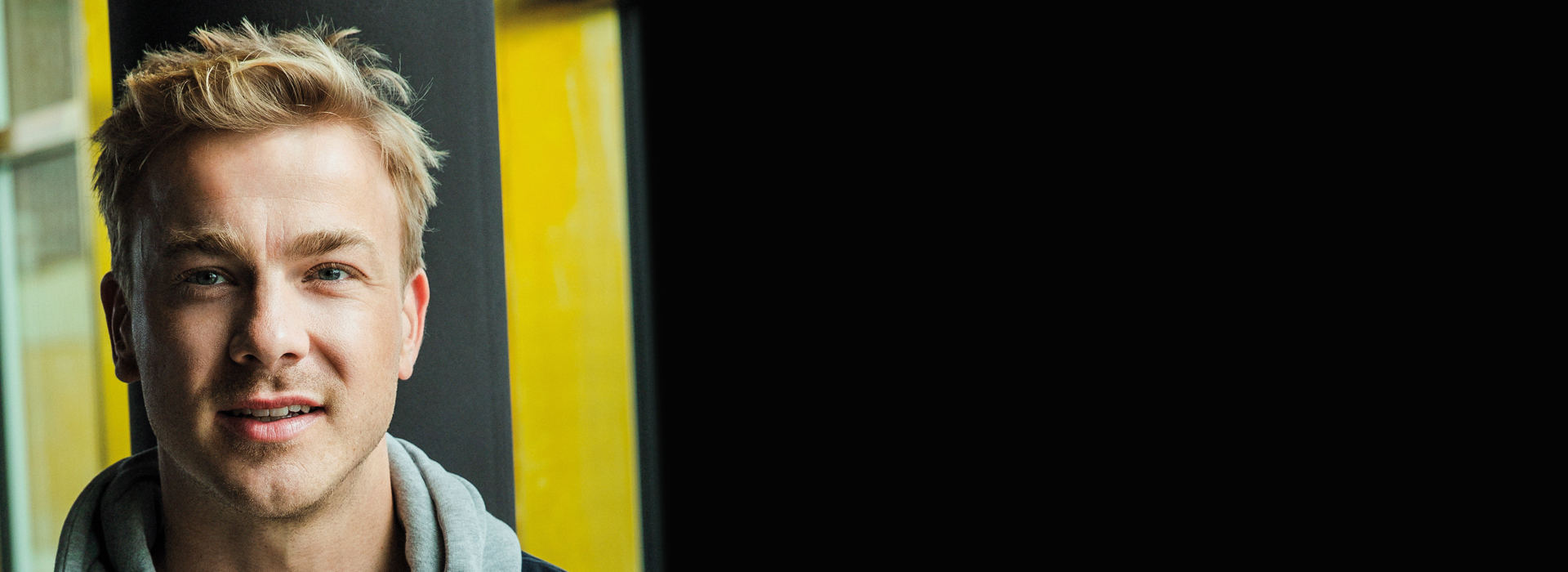A PORTRAIT OF ACTOR & EUROPAN SHOOTING STAR ALBRECHT SCHUCH
Albrecht Schuch © Steffen Roth“What I really like about being an actor is the creative process and the opportunity to broaden my horizons as well as gain insights into areas which would otherwise remain hidden” says Albrecht Schuch who has been selected to represent Germany at this year‘s EUROPEAN SHOOTING STARS showcase of the continent‘s most promising acting talents to be held during the Berlinale.
“What interests me as an actor is how complex and contradictory man is – that fascination has stayed with me to the present day,” he notes.
A graduate of Leipzig‘s Hochschule fuer Musik und Theater “Felix Mendelssohn Bartholdy” in 2010, Schuch has stayed in the minds of TV viewers and cinema-goers alike thanks the diverse roles he has been cast to play over the last decade.
They have ranged, for example, from the German explorer Alexander von Humboldt in Detlev Buck‘s 3D adaptation of Daniel Kehlmann‘s bestseller MEASURING THE WORLD through the neo-Nazi Uwe Mundlos in the TV three-parter GERMAN HISTORY X, the landscape artist Otto Modersohn in Christian Schwochow‘s PAULA and the investment banker Adam Pohl in Schwochow‘s BAD BANKS series to the social worker Micha Heller in Nora Fingscheidt‘s Oscar-nominated debut SYSTEM CRASHER and the drug dealer Reinhold in Burhan Qurbani‘s 2020 Berlinale competition entry BERLIN ALEXANDERPLATZ – with the latter two roles earning him LOLAs at last year‘s German Film Awards.
As Schuch points out, he had already embraced diversity and developed versatility in his acting through his work on the stage at theatres in Jena, Leipzig, Berlin and Vienna, among others: “That is the foundation for my work and I love this playful way of transformation. I played so many different roles during my time on the stage and worked with so many directors that it was completely normal to be constantly switching from one character to the next.”
Various factors come into play when he decides which project to board. “It has a lot to do with where I happen to be at the time, how I feel and where I‘m coming from,” he explains. “I‘m also strongly influenced by the impression left on me by the director, who the other actors are, and the role I am to play.”
As his filmography clearly shows, Schuch has sought to avoid the trap of being typecast as an actor destined for certain kinds of roles. In BERLIN ALEXANDERPLATZ, for example, he portrayed the seeming incarnation of evil with the drug dealer Reinhold. “When the film came out, I kept getting offers of roles in this direction, but that‘s when now more than ever I wanted to make a 180 degree turn with the next part”.
While Schuch has also worked with filmmakers as diverse as Hermine Huntgeburth (NEUE VAHR SUED) and Thomas Stuber (KRUSO), he has had a particularly fruitful collaboration with Christian Schwochow on five productions to date since appearing in the TV movie adaptation of Uwe Tellkamp‘s THE TOWER in 2012.
“There is definitely a kind of chemistry between us,” he admits, “We share a desire to explore new avenues and accept a long period of preparation if needs be. Christian originally started out as a journalist and he has an almost documentary approach to the way he prepares his projects. He could see that I have a similar curiosity about things and am not set in my ways, so that I could go from being a neo-Nazi one minute and then play a painter [like Modersohn].”
Meanwhile, his selection as one of this year‘s EUROPEAN SHOOTING STARS fits in nicely with one of his personal ambitions to want to work on international projects in the future: “I am brushing up on my English, so that I will be prepared for the Skype meetings with the casting directors,” the 35-year-old explains and cites John Michael McDonagh‘s 2014 black comedy CALVARY as a particular favourite among recent British films.
“I would really like to shoot in English for an English or Irish production,” Schuch concludes, “because I have the feeling that the English language gives actors more scope to express themselves than might be possible in the German language.”
Martin Blaney

